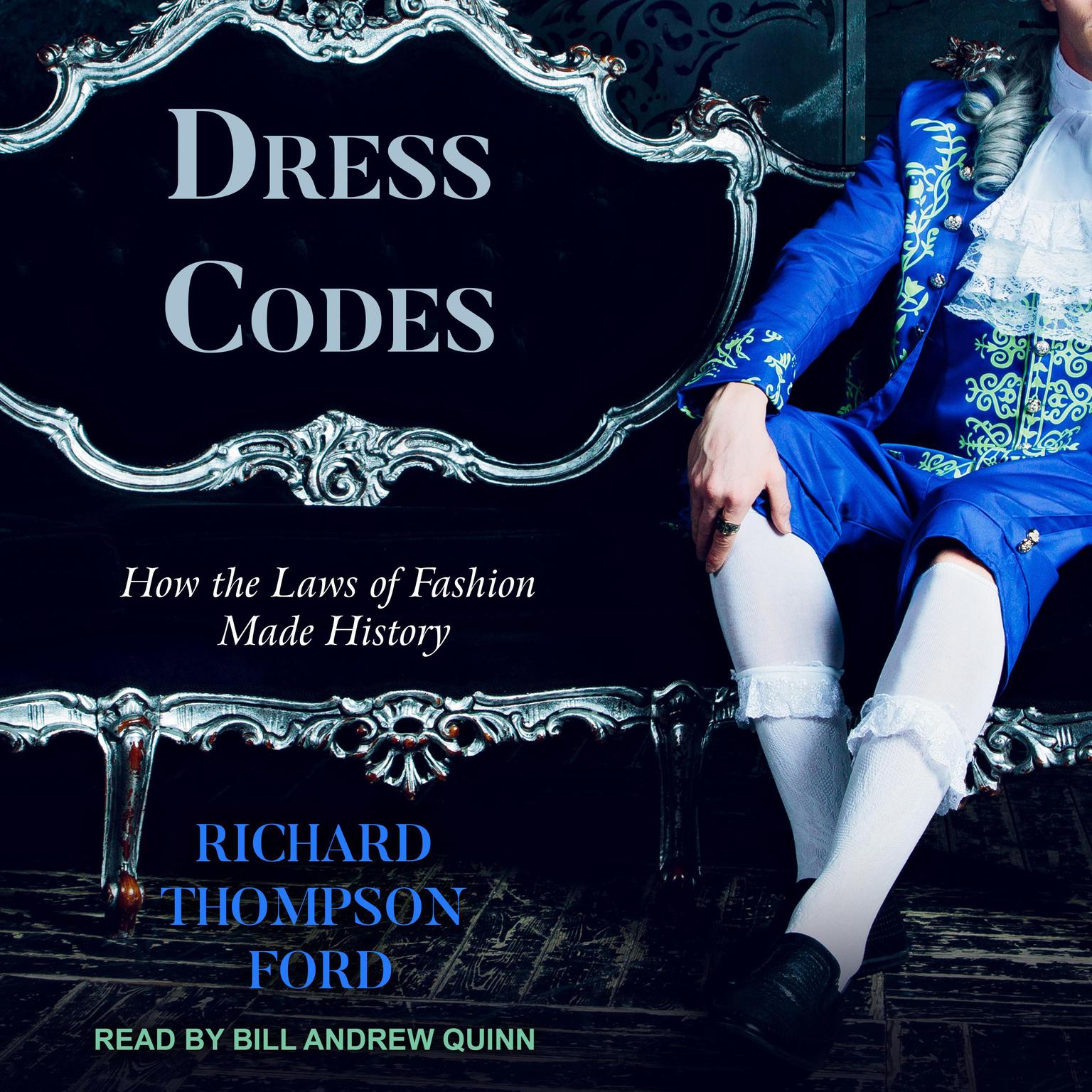 Play Audiobook Sample
Play Audiobook Sample
Dress Codes: How the Laws of Fashion Made History Audiobook
 Play Audiobook Sample
Play Audiobook Sample
Quick Stats About this Audiobook
Total Audiobook Chapters:
Longest Chapter Length:
Shortest Chapter Length:
Average Chapter Length:
Audiobooks by this Author:
Publisher Description
For centuries, clothing has been a wearable status symbol; fashion, a weapon in struggles for social change; and dress codes, a way to maintain political control. Dress codes evolved along with the social and political ideals of the day, but they always reflected struggles for power and status. In the 1700s, South Carolina's "Negro Act" made it illegal for Black people to dress "above their condition." In the 1920s, the bobbed hair and form-fitting dresses worn by free-spirited flappers were banned in workplaces throughout the United States, and in the 1940s the baggy zoot suits favored by Black and Latino men caused riots in cities from coast to coast.
Even in today's more informal world, dress codes still determine what we wear, when we wear it—and what our clothing means. And even when there are no written rules, implicit dress codes still influence opportunities and social mobility. Silicon Valley CEOs wear t-shirts and flip flops, setting the tone for an entire industry: women wearing fashionable dresses or high heels face ridicule in the tech world and some venture capitalists refuse to invest in any company run by someone wearing a suit.
In Dress Codes, law professor and cultural critic Richard Thompson Ford presents an insightful and entertaining history of the laws of fashion from the middle ages to the present day.
Download and start listening now!
“Sharp and entertaining.”
— Wall Street Journal
Dress Codes Listener Reviews
Be the first to write a review about this audiobook!
About Bill Andrew Quinn
Bill Andrew Quinn is a veteran in the voice-over world. In addition to hundreds of commercials and audiobooks, his many credits include work on The Sopranos, The Montel Williams Show, and Showtime at the Apollo, as well as characters for Grand Theft Auto IV and other video games. Totinos, Corona, Lincoln-Mercury, and McDonald’s are among his many television campaign clients.


